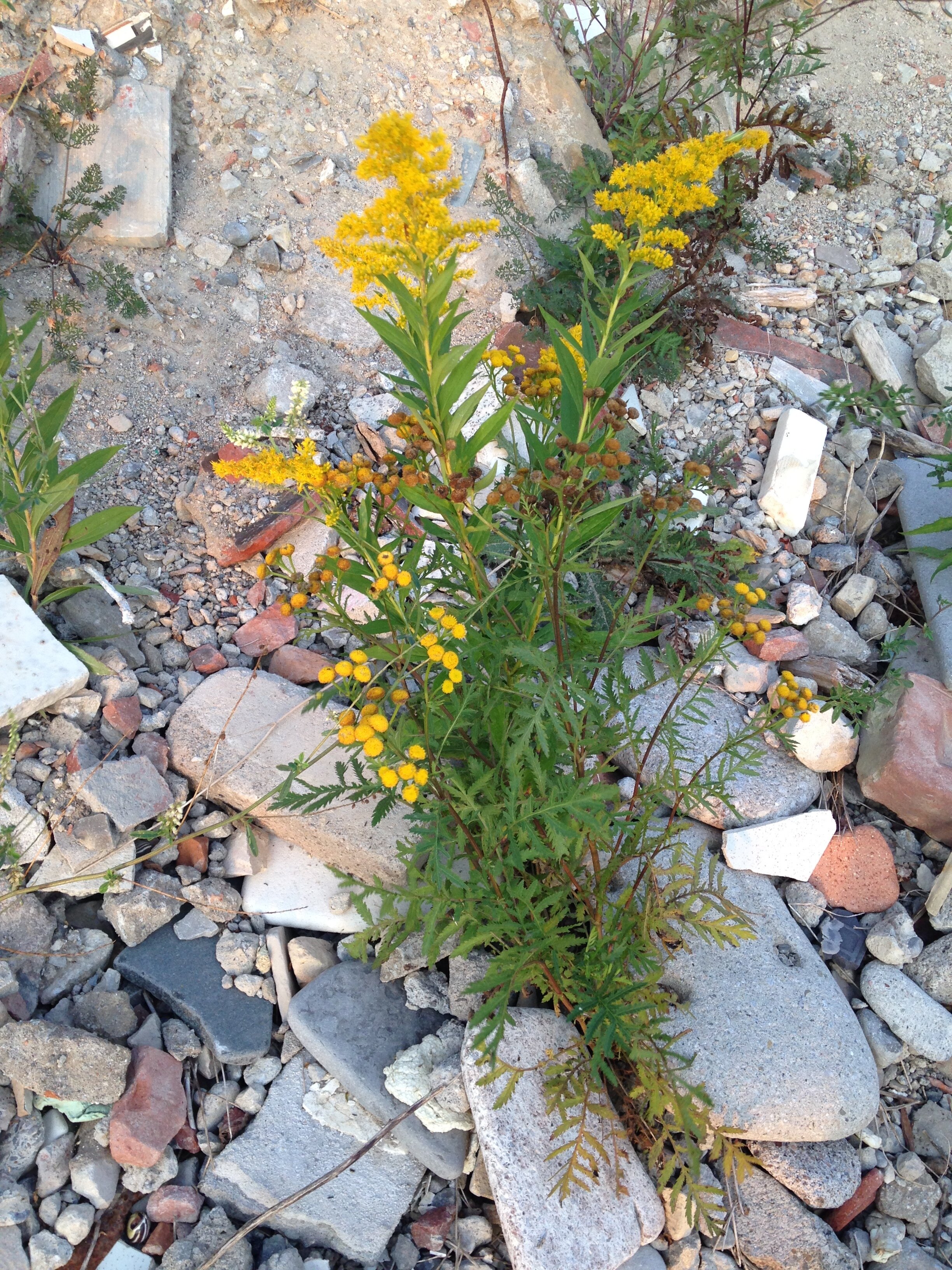To Know The Land Means To Support Those Whose Land It Is We Are On.
Goldenrod and Tansy, entangled amidst the rubble of urban debris, Leslie st. Spit, 26.09 2020.
My friend and partner shared a quote recently from a zine called “Another Word For Settle” :
“It must not be seen as a necessary precondition for decolonization that settlers develop relationships (spiritual or affective) with land that we occupy. Settlers deciding to prioritize building these new relationships with the land does not bring us closer to decolonization. Focusing on settlers’ spiritual or affective relationships to the land as an important part of anti-colonial struggles sidetracks and warps our ability to focus on the much more central problems of settler colonial Canada.”
This quote is complex, challenging and inspiring to me. I have to reread it a couple of times everytime I take a look just to make sure I have all the parts together, as it says a lot in only a few words.
Here is my translation, I hope, of the text:
“You don’t have to know the land to support decolonial struggle. If your priority is knowing the land before prioritizing supporting indigenous people to get their lands/lifeways back, then you are getting distracted from the more important issue of supporting indigenous peoples getting their lands/lifeways back.”
For me, for this life project of getting to know the land, while also trying to build relationships with those who also seek to know the place, but not having good relationships with indigenous peoples here on this land I long to know, then that is a problem.
I have come to understand that indigeneity is about being a part of the land, and that means that without land you are apart of, you are now disconnected from your ancestry, your lifeways, culture, spirituality, family, teachers, and part of yourself. You are a wandering hungry ghost, without tangible anchors to the things that make all those things mentioned above alive in you. Think White People. Adrift on an endless sea of meaninglessness, disconnection, and amnesia. No wonder nihilism and solipsism is rampant. That’s why us White People often reach for connection, in desire for the meaning, memory and intimacy we’ve lost touch with. But if that quest for personal connection overtakes our obligations to challenge the systems which impede the connection [these words are so small] from others then we aren’t on track to be in good relationship with the land we’re on or to the people who are in relationship with the land already but instead we end up supporting the process of colonization even more so... It feels to me like we embody all those nasty villains who kidnap some lady and force her to marry them in the old black and white movies. We are actively breaking up relationships, just as the state did with residential schools(1)(2), or still does with Family and Children Services(1)(2)(3).
While holding this understanding that if we don’t prioritize indigenous folks in getting their lands and lifeways back then we are complicit in their colonization and genocide, I also believe that to build a relationship with the land in meaningful ways, helps settlers empathize, and motivates them to take action to defend both the land and those who have lived in right relationship with the land since “time immemorial”.
"In the end we will conserve only what we love;
we will love only what we understand;
and we will understand only what we are taught."
- Baba Dioum, 1968
Indigenous stewardship of lands comes from connection with elders and culture that teaches new generations how to be in good relationship with the land. If we recognize that this knowledge isn’t magical or comes from nothing, but instead is instilled by teachers and elders, and reinforced by culture and experience, then we need to recognize that this teaching/sharing model works to develop land stewards and empathetic humans. We need to teach how to be with the land while we also help support indigenous sovereignty and getting their land back. We have to teach that we are uninvited guests in the valleys and forests we occupy, and that the original caretakers are being actively displaced, jailed, and pushed out by the systems we support and participate in to make space for our being there. These two understandings must be entwined. If we only teach the love for the land then we forget the long histories of caretaking, tending, mending, defending that native folks have been doing forever. We will forget that most land care or land based knowledges we teach and share with others comes from indigenous peoples and their knowledges. And if we only seek to support indigenous decolonial endeavours then I think settler folks won’t have the anchor they need to continue when our struggles for indigenous liberation get tough.
I think the land makes a great forum where solidarity and cross cultural empathy and understanding can be taught. The land shows us how diverse communities can co-exist and thrive and create mutualisms which support all involved. Ecosystems can be models for complex relationships and nuance.
Of course, as a settler, my opinions and positions, my answers or lack thereof are informed by an ingrained white supremacist lens. I can’t say I’m beyond it, or know how to see through it. I’m still working with it everyday and through every interaction. This is part of the struggle.
No one is saying don’t spend time learning about or connecting with the landbase, but instead not to hold it as the priority number 1. We should prioritize indigenous access to their land and sovereignty with the land. I feel like most of the indigenous folks I have ever been in relationship with would make this point, or have already made this point which I’m just reiterating.

